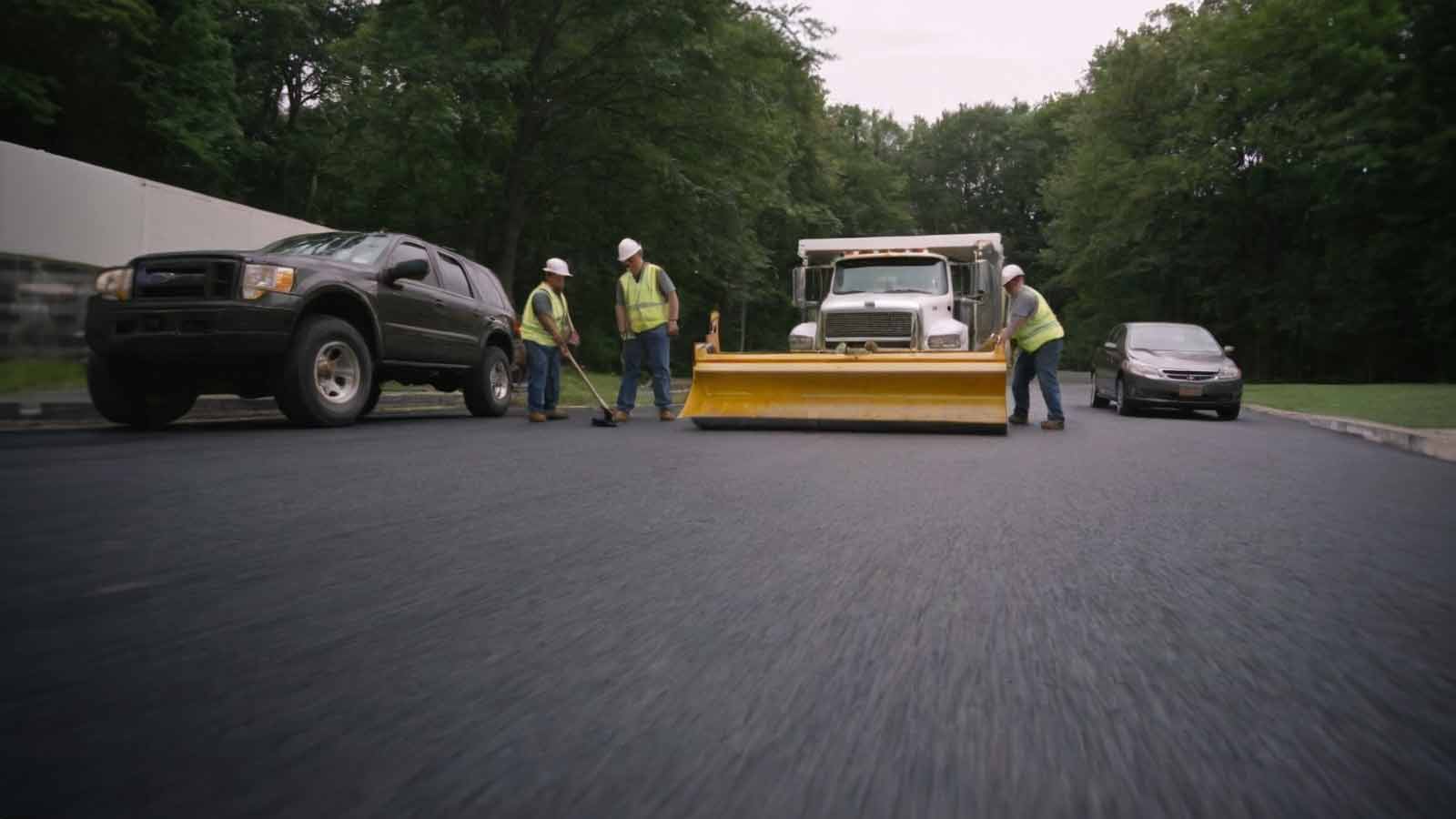Discovering the Various Kinds Of Asphalt Paving and Their Advantages
From the robust characteristics of Warm Mix Asphalt to the environment-friendly qualities of Recycled Asphalt Sidewalk, comprehending these options can considerably affect job end results. Innovations such as Warm Mix Asphalt and Porous Asphalt present additional layers of efficiency and sustainability.
Hot Mix Asphalt
When taking into consideration the most reliable leading options, hot mix asphalt (HMA) sticks out as a top option for numerous applications (paving service). HMA is a functional paving product understood for its sturdiness, versatility, and general efficiency. It is generated by heating asphalt binder and combining it with accumulations at high temperature levels, making certain an uniform mix that can stand up to various environmental conditions
Among the primary advantages of HMA is its capability to supply a smooth, skid-resistant surface area, boosting safety for lorries and pedestrians alike. Furthermore, HMA exhibits outstanding resistance to contortion, making it excellent for high-traffic areas such as highways and car parking whole lots. Its flexibility to different environments further contributes to its extensive usage.
The setup process of HMA is reasonably quick, permitting reliable task conclusion with marginal disruption to web traffic. Furthermore, it can be recycled, minimizing waste and advertising sustainability within the building and construction sector. Generally, hot mix asphalt continues to be a top selection for leading experts because of its robust performance characteristics and lasting cost-effectiveness, making it a dependable option for various infrastructure needs
Cozy Mix Asphalt
Warm mix asphalt (WMA) offers an ingenious option to hot mix asphalt, supplying comparable advantages while calling for reduced production temperature levels. Generally generated at temperatures in between 190 ° F and 250 ° F, WMA modern technology decreases power intake and greenhouse gas discharges during production, making it a much more eco-friendly option.
Among the key advantages of WMA is its extensive workability duration. The lower temperatures permit much more effective transportation and placement, specifically in cooler weather problems. This versatility can result in boosted compaction and general longevity of the asphalt surface area. In addition, WMA can be utilized in various applications, varying from freeways to domestic driveways, without jeopardizing efficiency.

The incorporation of additives or modified binders in WMA adds to its boosted residential properties, guaranteeing that it satisfies or surpasses performance criteria. WMA's lowered thermal effect during manufacturing can lower the chance of damage to the surrounding environment, making it an attractive selection for sustainable paving practices.
Cold Mix Asphalt
Cold mix asphalt is a flexible paving option generally utilized for short-lived repairs and low-traffic locations. This kind of asphalt is generated at ambient temperature levels, making it a practical option for quick fixes and jobs where traditional hot mix asphalt might not be viable. The blend typically includes asphalt binder, accumulation, and additives, permitting it to continue to be convenient for an extended period.
One of the primary benefits of chilly mix asphalt is its convenience of application. It can be mounted without specialized equipment, making it easily accessible for smaller sized professionals and DIY enthusiasts. Furthermore, cool mix can be used in different weather conditions, which is especially useful for urgent fixing needs.

Cold mix asphalt is also cost-effective, as it permits economical repairs without sacrificing high quality. Its versatility makes it ideal for patching gaps, loading cracks, and resurfacing driveways. Although it may not offer the exact same long-lasting resilience as warm mix asphalt, its quick application and versatility make it an exceptional choice for momentary remedies and low-traffic applications. On the whole, cold mix asphalt stays a useful choice in the asphalt paving landscape.
(read more)
Porous Asphalt
Porous asphalt is an innovative paving option created to enhance stormwater management and reduce surface area overflow. This kind of asphalt features an one-of-a-kind framework that incorporates interconnected voids, enabling water to permeate through the surface area and right into the underlying layers. By assisting in all-natural drainage, permeable asphalt assists alleviate the risk of flooding and lessens the burden on community stormwater systems.
One of the main benefits of permeable asphalt is its capability to enhance water high quality. As stormwater infiltrate the sidewalk, pollutants and sediments are trapped, decreasing the number of pollutants that go into regional rivers. This adds to much healthier ecological communities and sustains conformity with environmental guidelines.
Additionally, permeable asphalt can enhance the longevity of the sidewalk itself. By decreasing water build-up on the surface, it reduces the potential for freeze-thaw cycles that can bring about fracturing and degeneration. Furthermore, the reduced requirement for typical stormwater administration facilities can cause expense financial savings for municipalities and programmers.
Recycled Asphalt Pavement
(more details)Recycled asphalt sidewalk (RAP) represents a lasting technique to street building and maintenance that profits both the setting see this here and the economic climate. By reusing existing asphalt materials, RAP lowers the demand for brand-new basic materials, which consequently conserves natural deposits and minimizes ecological impact. This technique reduces energy intake and greenhouse gas exhausts related to the manufacturing of brand-new asphalt.
The incorporation of RAP right into new sidewalk combinations can likewise cause substantial price financial savings. Professionals can take advantage of recycled materials to lower general job expenditures, making it a financially practical alternative for communities and private programmers alike. Additionally, RAP provides equivalent performance features to virgin asphalt, making sure longevity and long life in road surfaces.
RAP's convenience allows it to be used in numerous applications, consisting of highways, car park, and residential driveways. By improving the architectural stability of existing sidewalks, RAP adds to improved safety and level of smoothness of highways.
Conclusion
Finally, the varied sorts of asphalt paving each deal distinctive advantages tailored to certain needs. Warm Mix Asphalt masters longevity and fast installation for high-traffic locations, while Warm Mix Asphalt enhances sustainability with minimized energy consumption. Cold Mix Asphalt serves as an economical option for urgent fixings, Porous Asphalt successfully handles stormwater, and Recycled Asphalt Pavement promotes environmental duty. Jointly, these leading remedies add to efficient, eco-friendly techniques in the building industry.